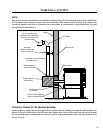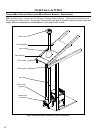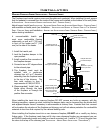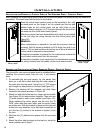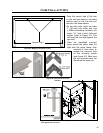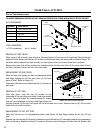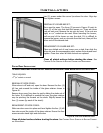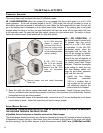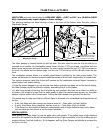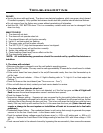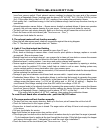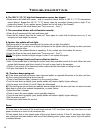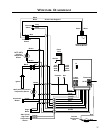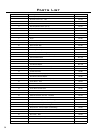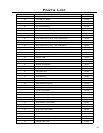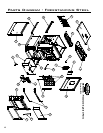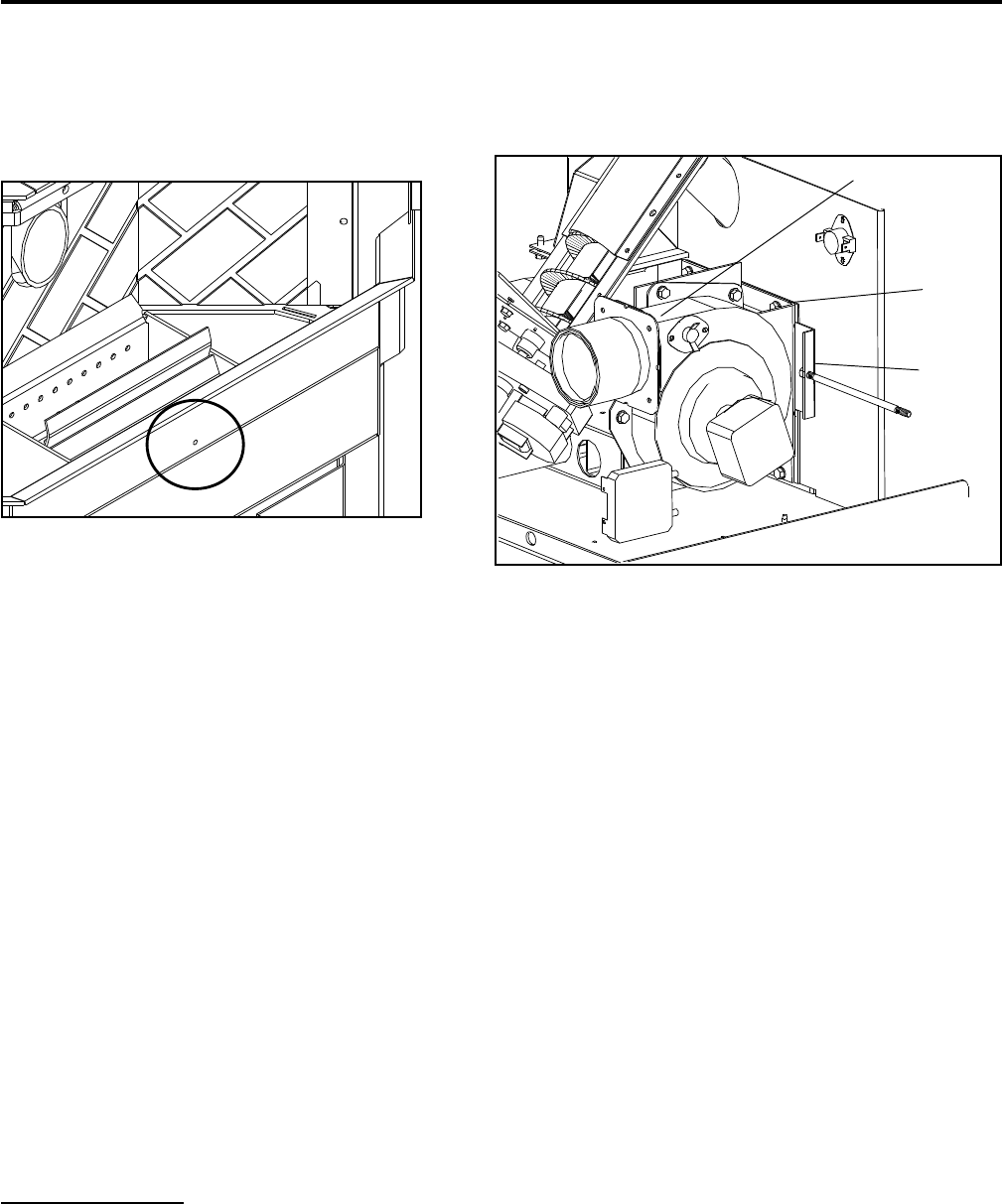
The slider damper is located behind the left cab side. The door must be open for the cab side to be
removed on all models. On freestanding model loosen the two T-20 torx screws, one above and one
below hinge, swing open left panel to access. On insert model remove the two (2) T-20 torx screws on
the front, one above and one below hinge, and the one T-20 at the top of the cab side under the top
front.
The combustion exhaust blower is a variable speed blower controlled by the heat output button. This
blower will decrease the vacuum pressure inside the stove and as the heat output button is turned down.
The vacuum pressure inside the firebox will increase as the combustion exhaust blower increases in
speed (higher heat output setting).
• If the fire should happen to go out and the heat output indicator has been set on the lowest setting,
the Slider Damper should be pushed in slightly, decreasing the air in the firebox.
• If, after long periods of burning, the fire builds up and overflows the burn pot or there is a build up
of clinkers, this would be a sign that the pellet quality is poor, this requires more primary air, the slider
damper must be pulled out to compensate. Pulling the slider damper out gives the fire more air.
The easiest way to make sure that an efficient flame is achieved is to understand the characteristics of
the fire.
• A tall, lazy flame with dark orange tips requires more air – Open slider (pull out) slightly.
• A short, brisk flame, like a blowtorch, has too much air – Close slider (push in) slightly.
• If the flame is in the middle of these two characteristics with a bright yellow/orange, active flame
with no black tips then the air is set for proper operation.
SPECIAL NOTES:
Pellet quality is a major factor in how the pellet stove will operate. If the pellets have a high moisture
content or ash content the fire will be less efficient and has a higher possibility of the fire building up and
creating clinkers (hard ash build-up). If this happens, pull the Slider Damper out slightly to increase the
air flow to the fire.
Slider
Damper
Exhaust
Channel
Exhaust Blower
Note: Some parts
have been removed in order
to see components more clearly.
Figure 49: Slider / Damper
Installation
HEAT LEVEL and when turned down to LOW HEAT LEVEL, a 0.07” to 0.11” w.c. (0.018 to 0.028
KPa). Some fuels may require higher or lower settings.
The pressure readings are taken through a hole in the front of the firebox under the door, using a
Magnehelic Gauge.
Figure 48: Hole for Pressure test with
Magnehelic Gauge.
33



